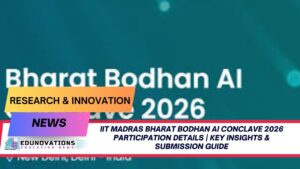Discover how scientific meat processing training for rural women entrepreneurs at ICAR-IVRI Kolkata is building skills, boosting income, and promoting hygienic meat value addition.
Introduction
The need for sustainable livelihood opportunities in rural India has never been greater. Women, who form the backbone of many households, often face limited access to skill development programs that could open doors to financial independence. Recognizing this challenge, the Eastern Regional Station of ICAR-Indian Veterinary Research Institute (IVRI), Kolkata, recently organized a scientific meat processing training for rural women entrepreneurs.
Conducted under the Development Action Plan for Scheduled Castes (DAPSC), the program combined hands-on learning with technical knowledge, offering rural participants the tools to create viable micro-enterprises in the meat sector. The initiative not only addressed the importance of hygienic practices in poultry and meat processing but also emphasized the potential of value addition to boost income and empower women in underserved communities.
Training Program Highlights
The workshop held at ICAR-IVRI Kolkata featured practical demonstrations, discussions, and the use of modern processing equipment. Participants were introduced to innovative methods of preparing poultry-based products such as:
- Chicken patties
- Sausages
- Nuggets
- Meatballs
- Croquettes
By focusing on these items, the program aimed to provide women with market-ready skills aligned with consumer demand. Trainers underscored that hands-on poultry value addition workshop: nuggets, patties, croquettes was designed to bridge knowledge gaps and encourage entrepreneurship.
Importance of Value Addition in Poultry
Value addition in poultry is increasingly relevant in India’s growing meat sector. Rising demand for ready-to-cook and ready-to-eat products has created opportunities for small-scale entrepreneurs. By equipping women with techniques like batter coating, frying, and packaging, the program demonstrated how basic poultry meat could be transformed into premium products with higher profit margins.
Participants also learned about safe storage and the role of refrigeration in extending product shelf life—critical knowledge for women planning to supply local markets. This aligns with the government’s broader focus on nutrition, food safety, and rural entrepreneurship.
Use of Modern Equipment
One of the most engaging aspects of the training was the demonstration of meat processing machinery. Women were introduced to the functionality of essential equipment, including:
- Meat slicer
- Sausage filler
- Meat mincer
- Bowl chopper
- Steam cooker
- Deep fryer
- Hot air oven
The meat value-addition techniques using slicer, mincer, chopper equipment allowed participants to see first-hand how technology can increase efficiency and improve product consistency. Trainers highlighted how such tools could help rural entrepreneurs compete with larger food processors by offering quality products at competitive prices.
Hygiene and Food Safety
Another key theme of the training was hygiene. Trainers explained how contamination risks could be minimized through strict adherence to food safety protocols. This included the use of gloves, proper cleaning of surfaces, and maintaining equipment.
The hygienic rural meat processing training for women micro-enterprises message was clear: success in entrepreneurship goes hand in hand with ensuring consumer trust through safe and hygienic practices. By promoting awareness of these standards, the program helped women understand that safety is not just a regulatory requirement but also a business advantage.
Empowering Rural Women
The training held broader socio-economic significance. By targeting Scheduled Caste women, the program directly addressed issues of inclusivity and equality. It created pathways for women to enter the value chain of the meat industry—a sector often dominated by men.
Experts at IVRI emphasized that such programs were essential for building sustainable models of rural development. The inclusion of rural women in scientific training reflects a shift towards inclusive growth, giving them tools not just for survival but for leadership within their communities.
Toppers Use Mind Maps to score more than 95%
NCERT Class 11th Commerce Mind Maps
Add to cartOriginal price was: ₹999.00.₹199.00Current price is: ₹199.00.NCERT Class 12th Chemistry Mind Maps
Add to cartOriginal price was: ₹199.00.₹75.00Current price is: ₹75.00.NCERT Class 12th Commerce Mind Maps
Add to cartOriginal price was: ₹999.00.₹199.00Current price is: ₹199.00.NCERT Class 12th Science Mind Maps
Add to cartOriginal price was: ₹999.00.₹199.00Current price is: ₹199.00.NCERT Mind Maps For Class 10th
Add to cartOriginal price was: ₹999.00.₹199.00Current price is: ₹199.00.
Purchase Today
Entrepreneurship and Income Generation
The dairy-free chicken croquette processing for small poultry businesses session was a highlight, showcasing how simple innovations could lead to niche product development. Trainers discussed how dietary preferences, such as dairy-free options, could tap into new market segments.
Participants were also given insights into branding, packaging, and marketing strategies. Trainers explained that with minimal investment, women could set up micro-units capable of supplying to local schools, small restaurants, and neighborhood markets. This strategy enables diversification of income and reduces dependency on traditional farming or daily-wage work.
Expert Opinions
Dr. R.K. Sharma, a senior scientist specializing in livestock product technology, noted:
“Empowering women with skills in meat processing is not only about food production—it’s about transforming communities. When women are given tools for entrepreneurship, they uplift entire households and inspire others.”
This sentiment resonates with India’s broader vision of Atmanirbhar Bharat (self-reliant India), where rural women are recognized as vital contributors to the economy.
Broader Context
According to FAO data, global poultry meat production is expected to grow steadily over the next decade. In India, the poultry sector has shown an annual growth rate of 8–10%, driven by rising incomes and changing dietary preferences. By aligning rural training programs with these trends, IVRI ensures that women are not left behind in this evolving landscape.
Moreover, this initiative aligns with the government’s Skill India Mission and the National Livelihood Mission, which aim to create widespread employment opportunities through vocational training.
Role of Technology and Digital Awareness
Beyond equipment, trainers also encouraged participants to explore digital platforms for marketing their products. Social media, WhatsApp groups, and online marketplaces can help women entrepreneurs reach a wider customer base without heavy investments.
For instance, showcasing chicken nuggets or croquettes online can generate direct orders from urban households looking for fresh, hygienically prepared alternatives. This blend of traditional skills with digital outreach demonstrates how rural women can adapt to modern business models.
Linking Learning to Broader Education
For readers seeking to expand their knowledge, resources like NCERT Courses, Notes, Current Affairs, and MCQs offer accessible pathways to build academic depth. Students exploring topics such as food safety, hygiene, or animal husbandry can benefit from structured learning while staying updated through Videos and Syllabus.
For free study material, including NCERT PDF downloads and NCERT Mind Maps, learners can integrate knowledge with skill-building opportunities like those provided by ICAR-IVRI.
Schools or training institutes aiming to highlight such initiatives online can connect with Mart India Infotech for website development services that enhance digital presence.
Conclusion
The scientific meat processing training for rural women entrepreneurs conducted by ICAR-IVRI Kolkata represents more than a skill-building exercise. It is a transformative step towards gender equality, food safety, and sustainable livelihoods. By combining modern techniques, hygienic practices, and entrepreneurial insights, the initiative opens doors for rural women to establish themselves as business leaders in the growing poultry sector.
Such efforts underscore the importance of targeted, inclusive programs that align with both national priorities and grassroots needs—ensuring that rural India thrives in the years ahead.
FAQs
Q1. What is the main purpose of the scientific meat processing training for rural women entrepreneurs?
The program aims to empower women by teaching hygienic meat processing and value addition, enabling them to start micro-enterprises.
Q2. What products were taught during the hands-on poultry value addition workshop?
Participants learned to prepare patties, nuggets, sausages, croquettes, and meatballs.
Q3. Why are meat value-addition techniques using slicer, mincer, chopper equipment important?
These machines increase efficiency, improve product quality, and help small entrepreneurs compete with larger businesses.
Q4. What is unique about dairy-free chicken croquette processing for small poultry businesses?
It caters to consumers with dietary restrictions, creating niche opportunities for entrepreneurs.
Q5. How does hygienic rural meat processing training for women micro-enterprises benefit communities?
It ensures food safety, builds consumer trust, and enhances women’s role in local economies.
Q6. Who organized the training program at ICAR-IVRI Kolkata?
The program was conducted by the Eastern Regional Station of ICAR-Indian Veterinary Research Institute under the DAPSC scheme.
Q7. What role does hygiene play in meat processing entrepreneurship?
Hygiene minimizes contamination risks, boosts consumer trust, and ensures long-term business success.
Q8. How can rural women market their value-added meat products?
They can use local markets, social media, and online platforms to expand reach and grow their businesses.
Q9. How does this program align with government initiatives?
It supports the Skill India Mission and National Livelihood Mission by creating new job opportunities.
Q10. What are the broader benefits of empowering rural women through scientific meat processing training?
It enhances household income, reduces poverty, promotes equality, and fosters community development.














